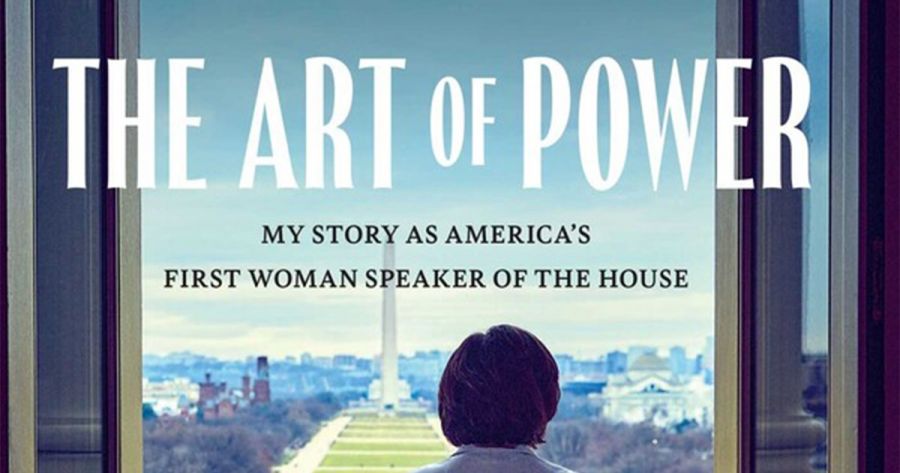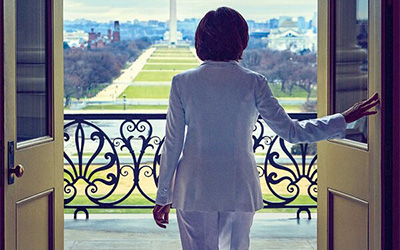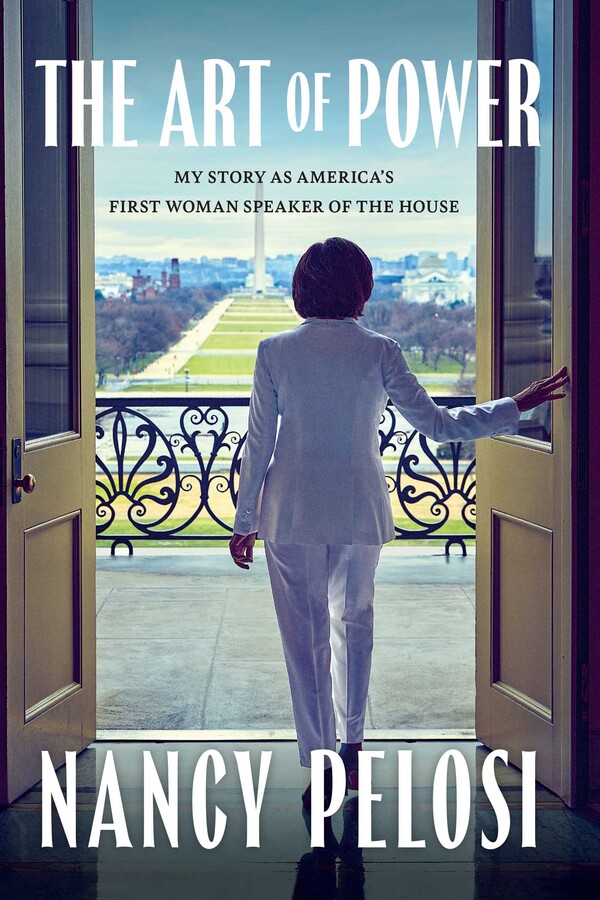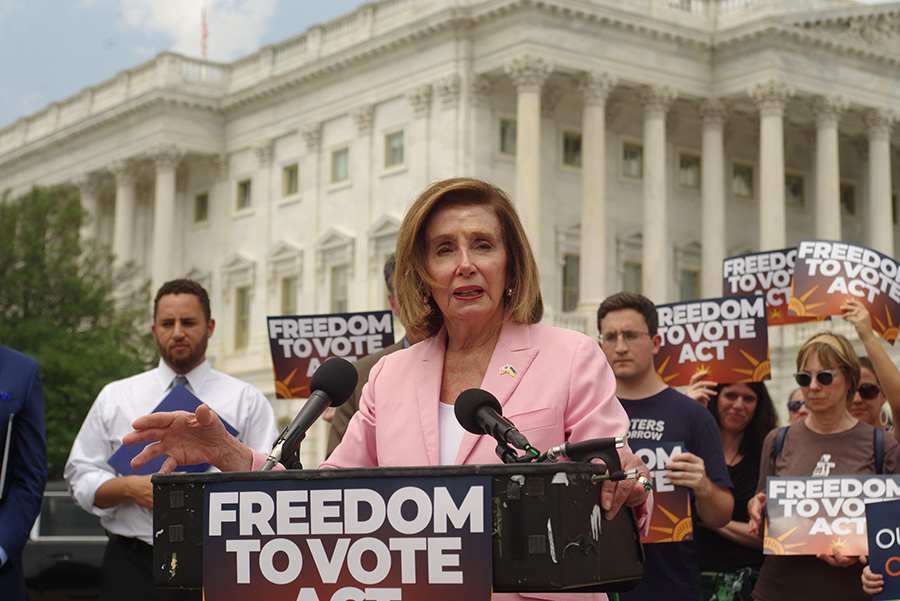
- Free Article: No
- Contents Category: United States
- Review Article: Yes
- Article Title: ‘Where is Nancy?’
- Article Subtitle: Paradoxes in the pursuit of freedom
- Online Only: No
- Custom Highlight Text:
As leading US historian Eric Foner wrote in his classic account, The Story of American Freedom (1999), it is the ‘story of freedom’ that conveys Americans’ favourite idea of itself. Of course, its meaning and uses change over time. It is a flexible value. We only need to look at candidates’ promises in the US election, with Kamala Harris declaring, ‘We choose freedom’ and Donald Trump (‘We believe in the majesty of freedom’) planning to build ten new futuristic ‘freedom cities’.
- Featured Image (400px * 250px):

- Alt Tag (Featured Image): ‘The Art of Power: My story as America’s first woman Speaker of the House’ by Nancy Pelosi
- Book 1 Title: The Art of Power
- Book 1 Subtitle: My story as America’s first woman Speaker of the House
- Book 1 Biblio: Simon & Schuster, $34.99 pb, 337 pp
- Book 1 Cover Small (400 x 600):

- Book 1 Cover (800 x 1200):

- Book 1 Readings Link: https://www.readings.com.au/product/9781398541078/the-art-of-power--nancy-pelosi--2024--9781398541078#rac:jokjjzr6ly9m
In the index to The Art of Power, the topic ‘human rights’ rates five entries: all refer to China. One of Pelosi’s favourite destinations was Taiwan, which she visited a number of times, beginning in 1999 and most famously in 2022, to ‘affirm Taiwan’s democracy, particularly in the face of increased repression inside China’. She explains that the ‘Chinese government has threatened Taiwan’s sovereignty from the beginning’. She was aware of the global significance of her controversial visit. Her flight into Taipei, she tells us breathlessly, was ‘the most tracked live flight at the time in Flightradar24’s history’. Even though the Congressional delegation she led touched down late at night, ‘thousands of people [packed] the streets of the capital, to cheer and celebrate our arrival’. Affirming Taiwan’s freedom was a cause dear to Pelosi’s heart. ‘If I do say so immodestly,’ she writes, ‘my knowledge of China is second to none in Congress.’
For thirty-five years she had tried, in her words, to hold China’s autocrats to account, and she took on four presidents in doing so. She identifies President George H.W. Bush, with his positive and collaborative approach to US-China relations, as a particular opponent. His landmark decision, in which he had agreed that how China treated its citizens was an internal affair, represented, for Pelosi, a policy of appeasement that ‘set the stage for the challenges and threats that we face from the Chinese government today’.
Little wonder that Pelosi looked astonished when told that former Australian prime minister Paul Keating had referred to Taiwan as ‘Chinese real estate’, remarks she called ‘stupid’. He in turn called her visit to Taiwan in 2022 ‘recklessly indulgent’. In dealings with China, Keating upheld the ‘One China’ policy and has since become a fierce critic of AUKUS, established by Australia, the United Kingdom, and the United States to combat so-called Chinese assertiveness. Not surprisingly, neither AUKUS nor Australia rates a mention in Pelosi’s book. In fact, despite her extensive travel she doesn’t seem that interested in the outside world. The Dalai Lama is in the index, but not Japan, India, NATO, or the United Nations.
 Nancy Pelosi speaks in support of the Freedom to Vote Act, 2024 (Philip Yabut/Alamy)
Nancy Pelosi speaks in support of the Freedom to Vote Act, 2024 (Philip Yabut/Alamy)
The Art of Power is written for an American audience to provide an inspiring account of how Pelosi, a mother of five and housewife from California, became the first woman Speaker of the House, serving two four-year terms (2007-11 and 2019-23). Few Australians would realise that the US Speaker commands more power – and status – than the equivalent Australian position, being second in the presidential line of succession. The ‘story’ Pelosi offers is largely an account of mentoring, networking, counting numbers, committee work, and legislative reform. There is much detail about Pelosi’s efforts to get the numbers, her lobbying efforts, negotiations, and persistence. She notes that she won nearly all of the legislative battles that she started ‘and those that I haven’t I characterize simply as “not yet achieved”’.
The reforms of which she is most proud include responses to the Global Financial Crisis, Barack Obama’s American Recovery and Reinvestment Act, and the health-care reforms put in place by the Affordable Care Act, which would honour the nation’s ‘founding promise of life, liberty and the pursuit of happiness’. When Pelosi arrived in Washington the AIDS epidemic was raging and San Francisco was one of the most heavily impacted cities in the nation. The ‘suffering of her constituents’ made her acutely aware of the need for universal health care long before she thought she might become Speaker and lead the campaign. She became an ardent advocate of the needs and rights of the HIV/AIDS community. Of her subsequent work with the Obama administration in securing the Affordable Care Act, she writes, ‘I considered my role to be that of maestro.’
Pelosi’s story of her work as the first female Speaker opens with a dramatic account of the frightening break-in at her San Francisco home in October 2022, when an intruder brutally attacked her husband, Paul, in an assault that necessitated surgery. Asking ‘Where is Nancy?’ the assailant precisely echoed the words of the insurrectionists at the Capitol on 6 January 2021, a mob urged on by Donald Trump. Pelosi offers the story of the horrific attack on her husband as an example of ‘leadership’s price’, pointing to the personal cost for some of participation in political life.
Pelosi blames the escalation of threats and political violence on Republicans and calls for it to stop. This year has seen two assassination attempts aimed at the Republican presidential candidate, whom Pelosi has denounced as a major threat to American democracy. But when American political leaders such as Joe Biden and Nancy Pelosi denounce violence, saying it has no place in the United States, they seem to enter a state of denial. There is little acknowledgment that the freedom they routinely celebrate arose from the country’s founding revolutionary violence that won their political independence.
That history also resulted in the Second Amendment, which protects the right to bear arms in the constitution. One of the reforms achieved by the Biden administration was to put some restrictions on gun ownership, hailed by Pelosi as the first ‘gun violence prevention legislation in a generation’. Harris promises to extend those reforms. Trump, the target of recent gun violence, insists he will protect gun owners’ rights in the name of freedom. In The Art of Power, Nancy Pelosi provides a positive account of Democratic achievement over the past three decades and is hopeful of sustained reform to come.


Comments powered by CComment